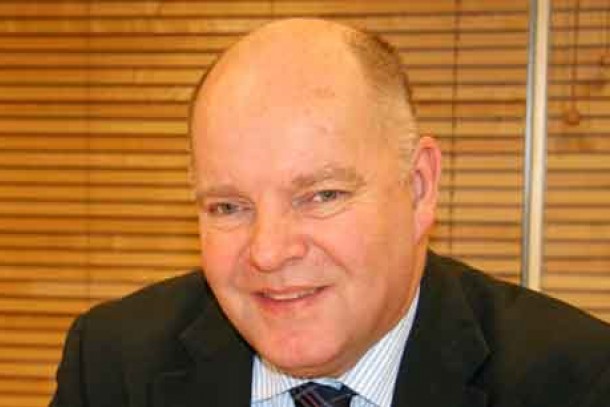25.02.2011 | Insight

“The Baltic Sea Action Plan Fund (BSAP Fund) links an idea to financing. We aim to facilitate and speed up projects that help to restore the health of the sea,” says the Nordic Investment Bank’s Senior Manager Anders Alm, who has just been appointed to take care of the fund.
The NIB and NEFCO managed BSAP Fund was set up in 2009 in order to provide grants for technical assistance to projects that support the implementation of the HELCOM Baltic Sea Action Plan (BSAP). Sweden has committed SEK 90 million (EUR 9 million) to the fund and Finland EUR 2 million. So far, five projects have been approved for financing and six more are in the pipeline. Of the fund’s capital, one-fifth has been committed.
“The aim of the BSAP Fund is to be a link between a promising project idea and the financing of its implementation by facilitating and speeding up the preparation of bankable projects. Therefore I think the cooperation with other Baltic Sea actors and financial institutions is crucial,” says Mr Alm.
“So far, most projects have been identified by us. At this stage, our main task is to spread the word in order to attract more applications,” he continues.
Projects approved for the grant financing range from EUR 18,000 up to EUR 1 million. The majority of the approved and pipeline projects target manure management and small scale wastewater treatment in Russia.
According to Anders Alm there has been a positive shift towards more interest and political will for the restoration of the ecological status of the Baltic Sea, and a risen awareness of the importance of the Baltic Sea’s ecosystem for the region’s economical development.
As examples, he mentions Sweden’s presidency of the EU in 2009, when Baltic Sea issues were at the top of the agenda, and also Sweden’s growing budget allocation for the marine environment. This part of the national budget has grown steadily and has now reached SEK 2 billion (approx. EUR 200 million). Another example is Poland, where discharges from wastewater treatment plants are being cut by half.
Despite the political will and growing interest in Baltic Sea issues, the number of financeable projects in this sector is not big. NIB has a specific lending facility, BASE, aimed at projects enhancing the state of the Baltic Sea. Of the EUR 500 million allocated to the facility, 72% was still unallocated at the end of 2010.
“Contrary to many other sectors, finding bankable Baltic Sea projects generating income to pay back a loan is quite a challenge. I am, however, confident that they exist,” Mr Alm explains.
He also believes HELCOM’s efforts to identify projects based on the national implementation plans will generate projects eligible for grant financing. According to Mr Alm, the ideal would be to have a dozen new projects in the pipeline by the end of the year.
“First we need to show that by granting financing through the BSAP Fund we can help Baltic Sea projects attract financing. If we succeed in showing concrete results and that there is a demand for preparatory grant financing, then I think more capital and donors will follow,” he concludes.
Mr Alm has considerable experience of international organisations and financial institutions. Before joining NIB in February 2011, Mr Alm worked as Head of Unit at the Swedish Ministry of Environment. During his five years at the Ministry his main area of responsibility was the marine environment. Mr Alm was the head of the Swedish delegation to HELCOM.